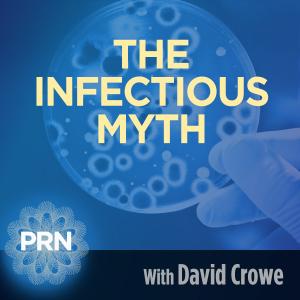
In Episode 84 David discusses the genocide of indigenous people in Canada with James Daschuk, an associate professor in the faculty of Kinesiology and Health Studies at the University of Regina in Saskatchewan, Canada. Despite Canada’s reputation as a polite and kind society, its treatment of its native population is as shocking as in other colonizing nations. Recently Canada has completed an investigation into its residential schools, which were used to destroy native culture under the guise of providing a standard education, and that resulted in physical and sexual abuse, opportunities for biomedical experimentation, and even starvation. This led to the destruction of native families and a continuing cycle of dysfunctional families, alcoholism, drug abuse and imprisonment. Canada is also about to start an investigation into the shocking number of women, mostly indigenous, mostly poor, often drug addicts or sex workers, who disappeared without authorities bothering to search for them. The most notorious of these was the case of Robert Pickton (https://en.wikipedia.org/wiki/Robert_Pickton), who confessed to killing 49 women in the Vancouver area. Finally, David and James delve into the history of the colonization of the prairies, the broken treaties, and the Indian Act that relegated natives to a child-like legal status, that James describes as apartheid.
You can find out more by reading Daschuk’s 2013 book “Clearing the Plains” that was a surprise bestseller in Canada and has won several awards: http://www.uofrpress.ca/publications/Clearing-The-Plains
Another surprise bestseller is the book of recollections of an elderly Cree man about growing up in a residential school, recommended by Daschuk: http://www.theglobeandmail.com/arts/books-and-media/residential-school-survivors-memoir-details-decade-of-utter-cruelty/article23556082/
An article on biomedical experiments in the 1940s and 1950s that took advantage of the under-nourishment at residential schools, and even prolonged it, can be found at: https://muse.jhu.edu/login?auth=0&type=summary&url=/journals/histoire_sociale_social_history/v046/46.91.mosby.html
More Episodes
 2016-05-31
2016-05-31
 1.6k
1.6k
 2016-05-24
2016-05-24
 289
289
 2016-04-19
2016-04-19
 574
574
 2016-04-12
2016-04-12
 4.8k
4.8k
 2016-04-05
2016-04-05
 286
286
 2016-02-23
2016-02-23
 552
552
Create your
podcast in
minutes
- Full-featured podcast site
- Unlimited storage and bandwidth
- Comprehensive podcast stats
- Distribute to Apple Podcasts, Spotify, and more
- Make money with your podcast
It is Free
- Privacy Policy
- Cookie Policy
- Terms of Use
- Consent Preferences
- Copyright © 2015-2024 Podbean.com





